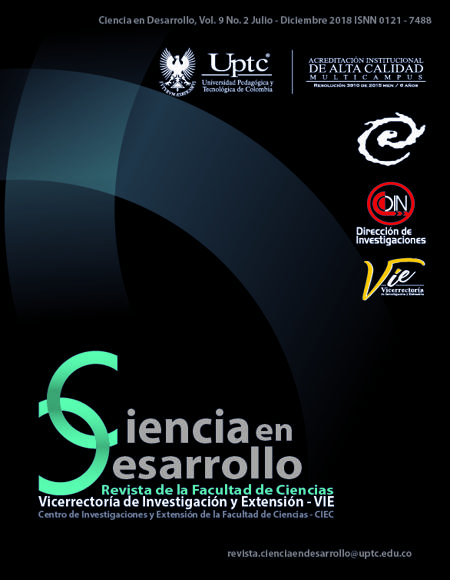Preparation and Characterization of Potato Starch Nanoparticles with Acrylamide by Microwave Radiation.

Abstract
In this study on decreasing the particle size of the potato starch, ultrasound and acid hydrolysis methods were carried out at the same time. The starch nanoparticles obtained were modified with acrylamide(AM) monomer by microwave irradiation, employing a small concentration of chemical initiator. It was found that, with a low concentration of potassium persulfate (PPS) in aqueous medium and microwave assistance, starch nanoparticles grafted with acrylamide could be prepared quickly. Native starch, starch nanoparticles and grafted copolymers were characterized by various analytical techniques. The Fourier transform infrared spectroscopy (FT-IR) analysis demonstrates group acrylamide attachment to starch nanoparticles chains. X-ray diffraction (XRD) and scanning electron microscopy (SEM) demonstrate an increased amorphous region of starch nanoparticles and grafted copolymers, while the thermogravimetric analysis (TGA) highlighted the increase in thermal stability of the copolymers in comparison to potato starch nanoparticles.
Keywords
Grafting, hydrolysis, microwave, starch nanoparticle, ultrasound
References
- D. Das, S. Jha, and K. J. Kumar, “Effect of carboxymethylation on physicochemical and release characteristics of Indian Palo starch,” International Journal of Biological Macromolecules, vol. 77, pp. 181–187, 2015. DOI: https://doi.org/10.1016/j.ijbiomac.2015.03.024
- Q. Zhou, W. Shi, X. Meng, and Y. Liu, “Studies on the morphological, crystalline, thermal properties of an under utilized starch from yam Dioscoreae zingiberensis C. H. Wright,” Starch/Staerke, vol. 65, no. 1–2, pp. 123–133, 2013. DOI: https://doi.org/10.1002/star.201200058
- M. M. P. Andrade, C. S. De Oliveira, T. A. D. Colman, F. J. O. G. Da Costa, and E. Schnitzler, “Effects of heat-moisture treatment on organic cassava starch: Thermal, rheological and structural study,” Journal of Thermal Analysis and Calorimetry, vol. 115, no. 3, pp. 2115–2122, 2014. DOI: https://doi.org/10.1007/s10973-013-3159-3
- S. Bel Haaj, W. Thielemans, A. Magnin, and S. Boufi, “Starch nanocrystals and starch nanoparticles from waxy maize as nanoreinforcement: A comparative study,” Carbohydrate Polymers, vol. 143, pp. 310–317, 2016. DOI: https://doi.org/10.1016/j.carbpol.2016.01.061
- A. Mohammad Amini and S. M. A. Razavi, “A fast and efficient approach to prepare starch nanocrystals from normal corn starch,” Food Hydrocolloids, vol. 57, pp. 132–138, 2016. DOI: https://doi.org/10.1016/j.foodhyd.2016.01.022
- S. Bel Haaj, A. Magnin, C. Pétrier, and S. Boufi, “Starch nanoparticles formation via high power ultrasonication,” Carbohydrate Polymers, vol. 92, no. 2, pp. 1625–1632, 2013. DOI: https://doi.org/10.1016/j.carbpol.2012.11.022
- A. M. Shi, D. Li, L. J. Wang, B. Z. Li, and B. Adhikari, “Preparation of starch-based nanoparticles through high-pressure homogenization and miniemulsion cross-linking: Influence of various process parameters on particle size and stability,” Carbohydrate Polymers, vol. 83, no. 4, pp. 1604–1610, 2011. DOI: https://doi.org/10.1016/j.carbpol.2010.10.011
- H. Y. Kim, S. S. Park, and S. T. Lim, “Preparation, characterization and utilization of starch nanoparticles,” Colloids and Surfaces B: Biointerfaces, vol. 126, pp. 607–620, 2015. DOI: https://doi.org/10.1016/j.colsurfb.2014.11.011
- Y. Qin, C. Liu, S. Jiang, L. Xiong, and Q. Sun, “Characterization of starch nanoparticles prepared by nanoprecipitation: Influence of amylose content and starch type,” Industrial Crops and Products, vol. 87, pp. 182–190, 2016. DOI: https://doi.org/10.1016/j.indcrop.2016.04.038
- D. Song, Y. S. Thio, and Y. Deng, “Starch nanoparticle formation via reactive extrusion and related mechanism study,” Carbohydrate Polymers, vol. 85, no. 1, pp. 208–214, 2011. DOI: https://doi.org/10.1016/j.carbpol.2011.02.016
- H. Y. Kim, D. J. Park, J. Y. Kim, and S. T. Lim, “Preparation of crystalline starch nanoparticles using cold acid hydrolysis and ultrasonication,” Carbohydrate Polymers, vol. 98, no. 1, pp. 295–301, 2013. DOI: https://doi.org/10.1016/j.carbpol.2013.05.085
- A. Umar, M. M. Sanagi, A. Salisu, W. A. Wan Ibrahim, K. J. Abd Karim, and A. S. Abdul Keyon, “Preparation and characterization of starch grafted with methacrylamide using ammonium persulphate initiator,” Materials Letters, vol. 185, pp. 173–176, 2016. DOI: https://doi.org/10.1016/j.matlet.2016.08.091
- R. Jain, B. K. Paswan, T. K. Mahto, and V. Mahto, “Study the effect of synthesized graft copolymer on the inhibitive water based drilling fluid system,” Egyptian Journal of Petroleum, 2015.
- E. M. Prieto, J. P. Alquisira, and C. R. Alonso, “Microwave and Ultrasound Activation Effect on Cationization of Corn and Potato Starches,” Ciencia en Desarrollo, vol. 4, no. 1, pp. 151–173, 2012. DOI: https://doi.org/10.19053/01217488.483
- E. de J. Muñoz Prieto, B. Rivas, and J. Sánchez, “Natural polymer grafted with syntethic monomer By microwave for water treatment-a review,” Ciencia en Desarrollo, vol. 4. pp. 219–241, 2012. DOI: https://doi.org/10.19053/01217488.487
- S. Mishra, A. Mukul, G. Sen, and U. Jha, “Microwave assisted synthesis of polyacrylamide grafted starch (St-g-PAM) and its applicability as flocculant for water treatment,” International Journal of Biological Macromolecules, vol. 48, no. 1, pp. 106–111, 2011. DOI: https://doi.org/10.1016/j.ijbiomac.2010.10.004
- V. Singh, A. Tiwari, S. Pandey, and S. K. Singh, “Microwave-accelerated synthesis and characterization of potato starch-g-poly(acryiamide),” Starch/Staerke, vol. 58, no. 10, pp. 536–543, 2006. DOI: https://doi.org/10.1002/star.200600520